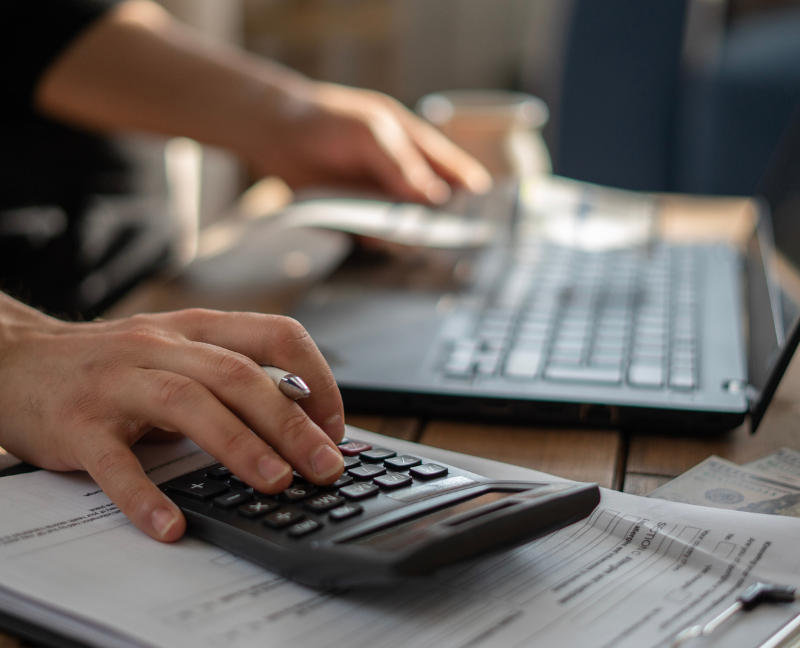Purchasing a home is typically the most significant financial decision you will ever make. You will discover that you have learned more about debt, property law, and real estate than you ever imagined during the home-buying process.
The secret to succeeding in the home-buying process is to stick to a budgeting strategy.
What Your Budget Should Be Depend On
The purchase price of the home and the amount of the loan you will need to take out to acquire it are the two main factors that affect the costs associated with buying a home. Your approach to making a homebuying budget can look a little different if you intend to pay the entire amount in cash rather than taking out a loan.
Step 1: Figure Out What You Can Afford Price-Wise
The purchase price is the first item on the homebuying budget. Naturally, until you've located the house of your dreams, you won't be able to determine the buying price.
However, start planning your homebuying budget well in advance. A decent rule of thumb for figuring out how much money you'll need to buy a house is that just to be safe, you'll need to save around 12% of the buying price.
That equals $52K at the current median home price of $440K. Of course, remember that starting homes in the US typically market for between $150K and $250K, and your first home will most likely not be your only residence.
You're looking at roughly $30K even at the top end of the beginning pricing range. Additionally, our projection is cautious, which we will discuss in more detail soon. By encouraging you to plan for the worst and hope for the best, we expect to save you money over time.
Step 2: Figure Out What Your Down Payment Will Be
Let's quickly dispel the idea that when you buy a home, you pay down at least 20% of its value.
While this is a fantastic way to avoid paying the monthly cost of Private Mortgage Insurance, which is added to your morxtgage payments, it will do you far more harm than good if it drains your finances.
When purchasing a home, Americans typically put down 6%, but many first-time homebuyers make no down payment at all. Government-backed loans like USDA and VA loans typically require no down payment, while FHA loans have down payment requirements as low as 3.5% (FHA loans aren't loans; the Fair Housing Administration will insure whatever loan you take out with a conventional lender).
Conventional 97 and HomeReady Loans allow first-time homebuyers with strong credit to make down payments as little as 3%, even if they are not eligible for any assistance programs.
Your down payment does not have to be a prohibitive cost of the home-buying process, as you can see. Getting the smallest down payment possible makes sense if you're a first-time homebuyer without the savings that seasoned homeowners have from selling a prior residence.
Making a sizable down payment on a house has the benefit of reducing the amount of the loan you need to take out to pay the remaining balance. Your closing costs, which are determined by your debt rather than the value of your house, will be lower the smaller the loan.
The decision is based on whether you would rather pay more money now or later. While it's generally a good idea to avoid interest, there is no right or wrong solution there.
You will have a better understanding going forward if you discuss with your real estate agent what previous homeowners in comparable situations have done.
Bet on a 6% down payment when you're first starting to create a budget for your house purchase, and you'll either be spot on or even end up saving money in the long run.

Step 3: Prepare For Closing Costs
One of the most difficult items to identify when making a budget for a home purchase is the dreaded big C's.
Closing expenses vary greatly by state, area, and market conditions. Who pays what—the buyer or the seller—and whether or not a lawyer needs to be present at closing are determined by a combination of law and custom.
Closing costs normally range between 3% and 6% of your loan sum.
In areas like Pennsylvania, Maryland, and Connecticut where closing costs are substantial, taxes account for a larger portion of the expenditures than actual expenses.
Including taxes, closing fees typically range from $ 2K to $4K. Assume that you will pay $4K plus an additional $1K for taxes just to be cautious.
Step 4: Random Expenses
Moving charges and storage space rentals for when you show your house to prospective purchasers are examples of random expenses. These expenses probably won't put you back too much.
With additional expenses, renting a rental company typically costs $50 a day. Although it's easier on your back, hiring a moving company to do the work is far more costly. In contrast to the $80 you would have to spend on dinner and beer to entice your friends to help you move, hiring a moving company typically costs around $1,400.
Generally speaking, you want your house to be as clutter-free as possible when you're selling it.
Renting a storage container or finding a highly kind friend or relative who would allow you to dispose of your belongings somewhere in their home are the two finest options. These days, a lot of people use storage PODS, which typically cost $150 per month. That's not too bad of a deal, considering that the listing period for a house for sale is typically between 30 and 40 days in most U.S. markets.
All things considered, when making a budget for a home purchase, it's wise to have a few thousand dollars extra set aside for unforeseen expenses.
We have now completed the process of developing a budget for a property purchase. For a starter home of about $250K, you'll need between $15K and $22K, assuming your down payment is between 3.5% and 6%. You might be able to buy a property for as little as $8K if you can get a loan with no down payment.
You will often need to spend 10% of the price plus an additional $3K to buy almost any home for sale in the United States, regardless of the type of home—from starter homes to luxury estates.
However, you shouldn't stop there with your finances.
Step 5: Prepare A Budget For Living In Your House
You may not be able to afford to live in a home simply because you can purchase one. A second budget should be made in conjunction with your homebuying budget to help you estimate your monthly expenses once you move into your new residence.
If you don't prepare ahead of time, you may end yourself house-poor, which means that your mortgage and other housing-related costs prevent you from saving money and begin to exhaust your savings, which may lead to foreclosure.
Planning in terms of proportion makes more sense because the cost of living varies greatly around the United States. Your monthly expenses for your house, such as your mortgage, repairs, and HOA dues, should ideally not be more than 28% of your income. You already spend a significant portion of your money on things like food, petrol, auto insurance, and phone bills.
We don't have to tell you how much money you spend on everything, though. Try to account for the type of monthly mortgage payment you can afford when making your homebuying budget.
Although the average mortgage payment in the United States is $1,100, you will still need to make other payments to maintain your house. If you live in a community with a homeowners association, you must also pay HOA dues. Your monthly household expenses will rise to $1,400 as a result of these fees, which typically total between $200 and $300 per month or $600 to $1500 annually.
Then there are utilities, which cost a lot more in a house than in an apartment. The average monthly utility bill for Americans is $170, though this will vary depending on where you reside and the season.
Lastly, home upkeep and repairs. It costs money to mow the grass and fix a leak in your ceiling. In addition to your mortgage and homeowners association dues, home repairs typically cost $170 each month, which comes to $1,740 per month.
Surprisingly, it's still less expensive than renting. In the United States, the median rent is getting close to $2,000. In the long term, owning a home is not only less expensive than renting, However, you will make more money when you sell it and create equity than if you moved out of your flat. The amount of money you may make from selling a property is technically unlimited, but renting an apartment will always leave you with nothing at the end of the day.
Bottom Line
Whether this is your fifth home or your first, we hope this guide has helped you budget for what you'll need when you buy a property.
It may seem contradictory, but as long as you're willing to pay for the house after you've purchased it, you'll have no issue becoming a successful homeowner.

